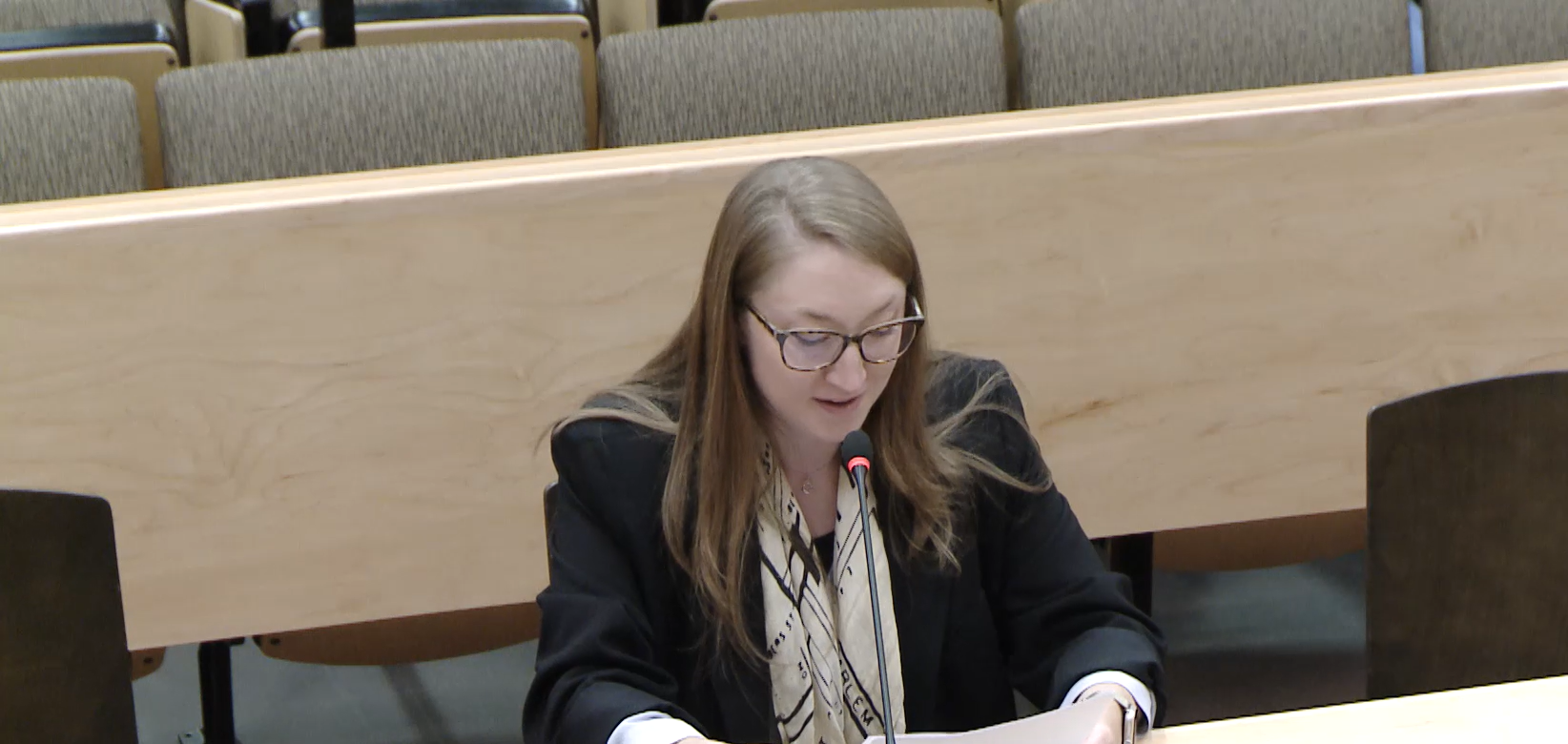Rennie Testifies on Literacy Bill

In 2023, Massachusetts legislators put forward bills to promote high-quality comprehensive literacy instruction. While these proposals did not advance, the conversation it sparked has shaped ongoing efforts to ensure every student has access to evidence-based literacy practices, as we explored in our 2023 analysis. Bills filed this session, S.338/H.698, build on that foundation but take a different approach. Both the House and Senate bills establish a statutory definition of “evidence-based literacy instruction” and require districts to align their curriculum with these practices. They also direct DESE to evaluate that alignment as part of its regular district review process. While the Senate bill focuses on setting expectations without prescribing programs, the House version goes further—outlining requirements for professional development, intervention supports, data reporting, and educator preparation. Together, these proposals set statewide expectations for high-quality instruction while preserving flexibility for districts in how they meet them.
On September 16, 2025, Rennie Center Director of Policy Alexis Lian testified to the Massachusetts Legislature's Joint Committee on Education regarding bill S.338, An Act promoting high-quality comprehensive literacy instruction in all Massachusetts schools. Her remarks are below.
"Good afternoon. Chair Lewis and Chair Gordon, members of the Joint Committee on Education, and other esteemed education leaders.
Thank you for the opportunity to testify on the importance of high-quality literacy instruction. I am Alexis Lian, Director of Policy at the Rennie Center for Education Research & Policy.
Through Rennie’s work across the state, we have seen that literacy is foundational. In a world of competing educational priorities, it can feel difficult to decide what should take precedence. But here, the evidence is clear: high-quality literacy instruction underpins nearly every other area of education.
The priorities in this legislation align with what research shows and with initiatives Massachusetts is already advancing.
First, access to high-quality instructional materials that include an explicit focus on foundational literacy skills. Research tells us that switching from lower- to higher-quality curricular materials is comparable to over half a year of additional learning and greater than the difference between a new teacher and one with three years of experience. There are strong models to help districts make these shifts. Based on the nationally respected review of curricular materials by EdReports and CURATE (Curriculum Ratings by Teachers), a DESE initiative managed by the Rennie Center that engages licensed Massachusetts teachers to evaluate curricula for quality and alignment with state standards. This work produces reports that provide clear, practical guidance to district leaders in selecting effective curricula that meet student needs.
Second, sustained professional learning that equips educators to deliver evidence-based instruction and meet diverse student needs. The Rennie Center is a key partner in leading the state’s Literacy Launch Institutes, which help school leaders and classroom teachers build the conditions to strengthen and sustain strong, evidence-based early literacy practices.
Critically, both of these efforts provide support to educators while offering flexibility and choice in identifying learning strategies that work best for their students and their communities.
The National Institutes of Health estimates that 95 percent of children can learn to read when provided with the right conditions. Yet in Massachusetts, less than half of third graders are proficient. This is both urgent and solvable. Thank you."
**Please note that the Rennie Center does not advocate for this or any other specific bill. Instead, this testimony is intended to share research and best practices to support legislators in their decision-making process.**
